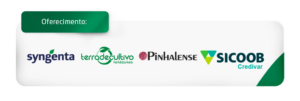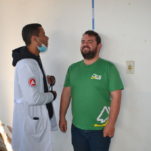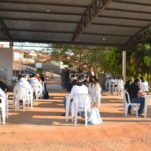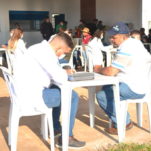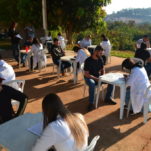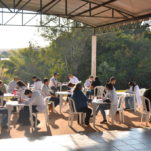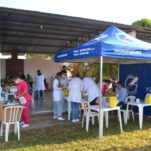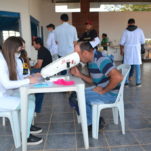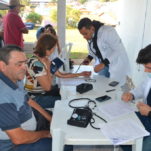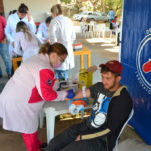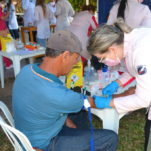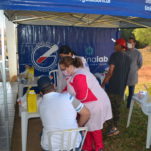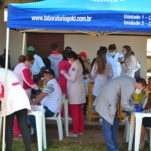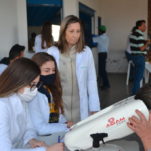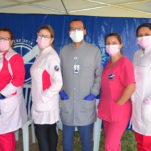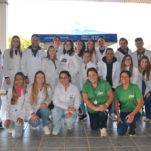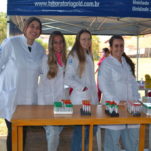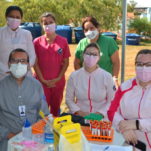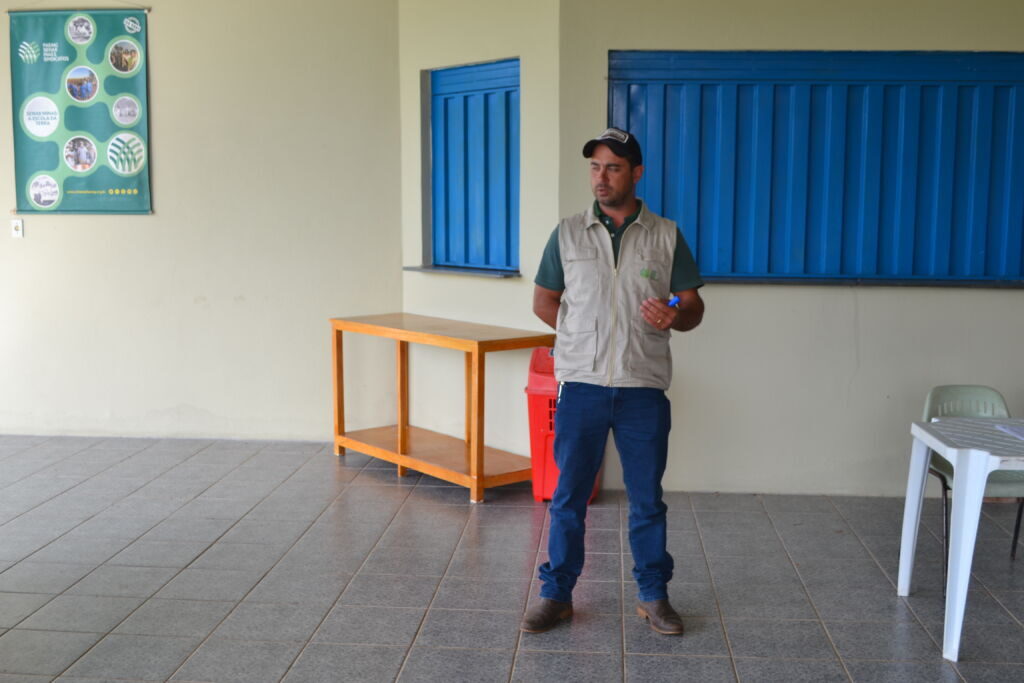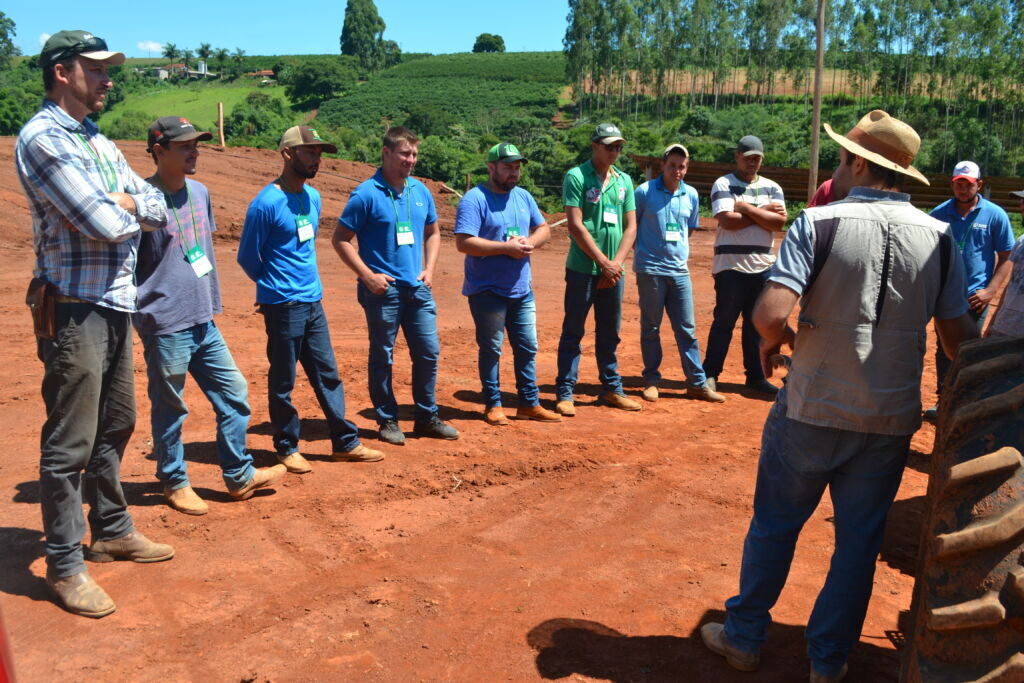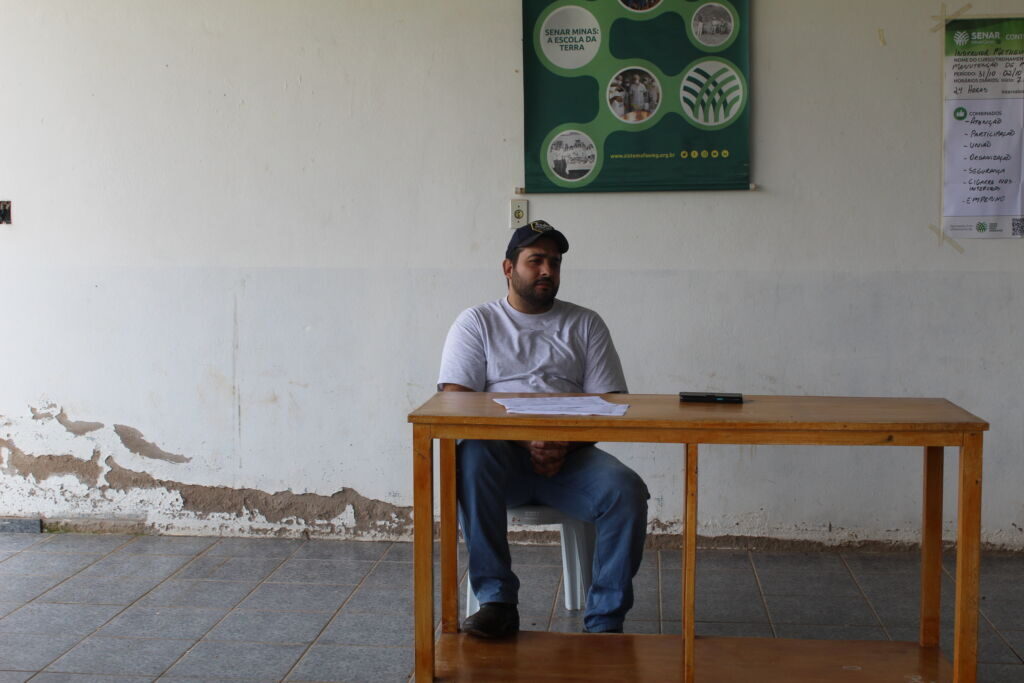COOMAP carried out, in partnership with Unifenas, another stage of the Planting and Harvesting Project in Paraguaçu, with blood collection for cooperative members, family members and rural workers, to check for contamination by pesticides. Collection was carried out on the first Saturday of September, at the Dom Bosco sports court, where breakfast was also served to all participants.
Before collection, cooperative members, workers and family members went through an anamnesis, which is an interview with medical students, to report health issues. They also answered a questionnaire about how pesticides are used on farms and how personal protective equipment (PPE) is used. Still within the questionnaire, they also reported on their diet. Then, Unifenas team collected anthropometric data, such as weight, height and blood pressure, and an eye exam was also performed using specific equipment.
After that, blood was collected for the cholinesterase test, which checks the degree of exposure of the person to toxic products, and also for the biochemical test, to check the functioning of the liver and kidneys. With the results at hand, it will be possible to identify cases of intoxication, which will be forwarded to doctors in the public health system, already prepared for treatment, through a partnership with the Municipality of Paraguaçu.
The Planting and Harvesting Health project has been in operation for some years, acting in several cities in the region. In Paraguaçu, thanks to the partnership with COOMAP, it has already helped several rural communities. In addition to blood collection, it also counts on activities to raise awareness of the population, such as lectures, theaters and dynamics, on the reduction and rational use of pesticides in crops.
“COOMAP is an excellent partner. It is always available and takes great care of its members, making sure that producers and rural workers are healthy. This work is extremely important because it deals with health”, said the project coordinator, Alessandra Cristina Pupin Silvério, who has a doctorate in toxicology and is a professor of toxicology in the pharmacy and biochemistry major at the medical school at the University of Alfenas.
Aware of its role with its members and with the community, COOMAP increasingly seeks to promote sustainability in the economic, environmental and social sectors. COOMAP, for 65 years cultivating work, harvesting results.
